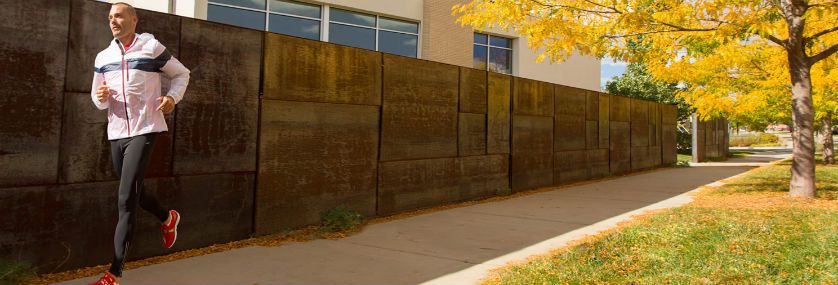Yuki Kawauchi is a Japanese civil servant who works in a public school about 50 kms from Tokyo and who is becoming well known among all of us who follow the great international marathons.
His great passion, like that of many of his compatriots, is running, especially the marathon, a religion in that country. Before or after his daily work he trains with his series, long runs and even mountain races, in principle like any other popular runner.
What differentiates this athlete from all the others, what has made him world famous and admired is that he defies all the laws and rules related to this discipline: in 2012 he ran 10 marathons with extraordinary results (he won in 6) and in 2013 another 11, achieving elite athlete marks that link race after race, hovering around 2h10m.
This is an extreme and unique case of an athlete who has come to dispute 2 marathons in fifteen days with marks of 2h09m and 2h12m.
There are many other athletes who, driven by different motivations, also run that distance many times a year, we even have the well-known example of the great Ricardo Abad, who among many other challenges managed to complete 500 marathons in 500 consecutive days.
But, leaving aside the truly extraordinary athletes who are out of the ordinary, how many marathons can we run a year to the fullest?
If we assume that the specific preparation for this race is usually around, at least, 10 weeks, to which we must add some more weeks of general work (in which shorter races can be prepared) and the mandatory post-race rest, this would lead us to that each marathon period occupies us about 15 to 18 weeks. Doing the maths it seems clear that at most we could run 3 per year, but taking into account, among other variables that we will see later, that in order to fit this third objective we will probably have to forget about others, and even in that case the deadlines are too tight. In reality the most advisable thing would be to prepare 2 in such a way that besides having them well separated in the season would give us time to add more objectives such as half marathons, popular races, cross, etc ... that would also contribute positively to the achievement of the marks sought in the marathon events.
And if we compete them to the fullest ....
We are talking about the case of the athlete who, regardless of whether he moves in 2h30m, 3h30m or 5h, will try to compete them to the fullest, seeking to improve time or at least the best time to which he can aspire depending on the circumstances that have surrounded his preparation. A different case is that of the athlete who links many marathons with the aim of finishing, to enjoy the atmosphere or to see new places without being pressured by the stopwatch, who has another philosophy and whose motivation is quite different but equally laudable.
And why can't you do a full marathon every 2 months or less? The preparation itself has a very important physical and psychological wear, even more than the race itself, the marathon is the culmination of all the previous work because we have invested a lot of time and energy focusing all our efforts and turning ourselves to try to achieve that goal.
"The hardest part of the marathon is the preparation."
Many runners suffer the weeks after the race a general exhaustion, they have become "empty" and do not have the body or the head for big efforts, not even to think about them. It has been weeks of accumulating kilometers, long runs, series and hills, recovery runs and hard runs, good and bad days, better and worse with rain, cold or heat, fitting many pieces to get the necessary time to train, training sessions in which we have gone from the euphoria of a good day to the absolute demoralization the next, of great sacrifices, ... of living tired.
Why is it important to dose?
All this necessarily takes its toll no matter how well the race has gone, even if we have improved our performance and even if we have had good feelings until the last kilometer of the race. Although a few days later we may think that we have recovered well, this is not the case. There are always exceptions and we all know popular athletes who are immediately burning shoe, but if this special event has been prepared carefully, with good planning and has been played to the fullest, in most cases we will need a few weeks (up to 3 or 4 say many coaches and sports doctors) to start training with some normality in terms of intensity, strength levels and motivation needed, although the latter is more relative and depends on each one.
If we want to continue many years disputing marathons we have to dose and choose them well to be able to prepare them in the best conditions, but if we prioritize the quantity, not without effort and sacrifice, the thing changes completely.
- And you, how many marathons do you like to prepare for each year?
Photo: Brooks
Read more news about: Running Training



















